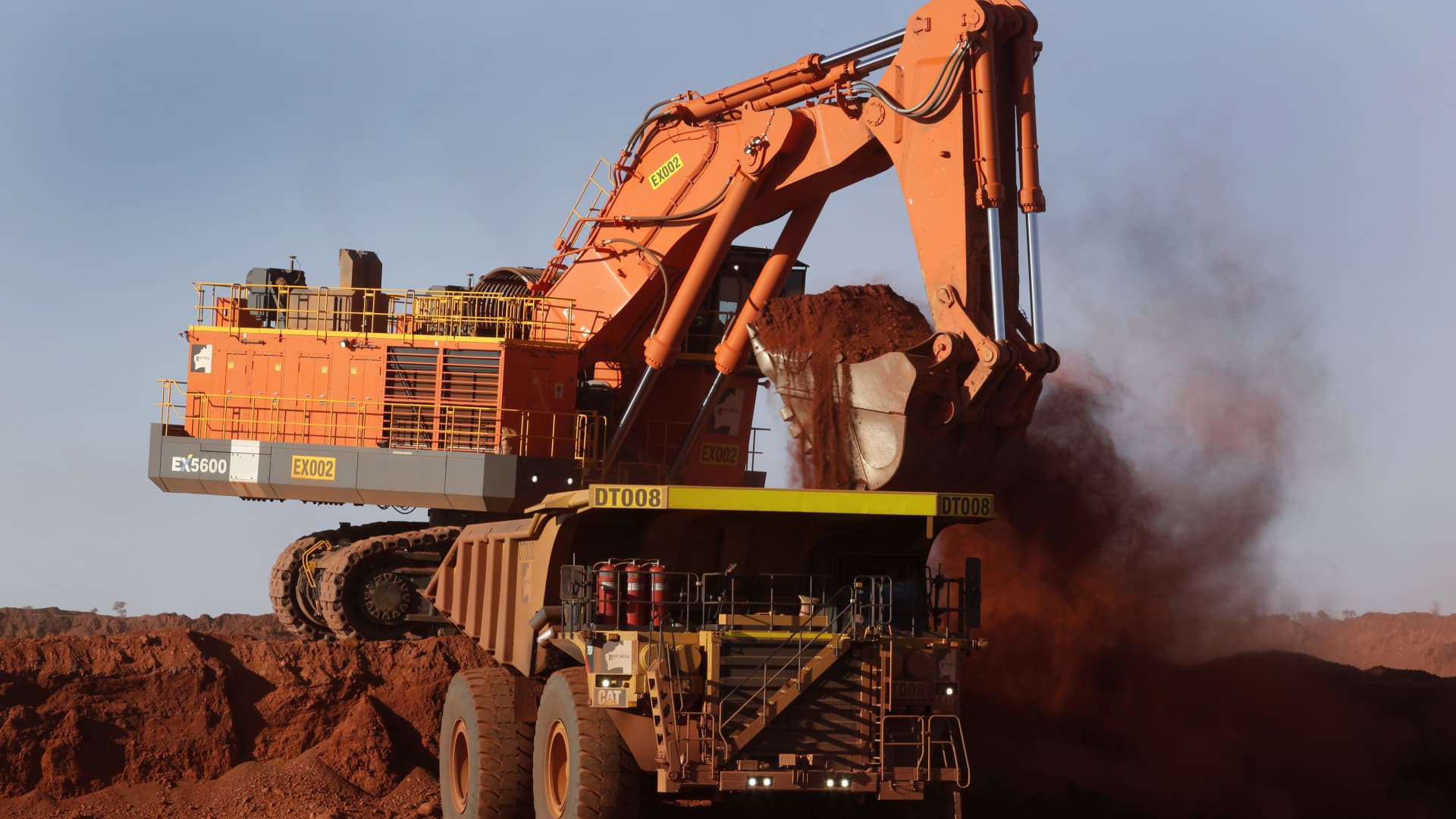
Demand for iron ore in China may have risen earlier this month, but the Swiss bank UBS says it’s a “short-lived” lift that will soon collapse. The investment bank said it believes earlier demand was partly driven by restocking ahead of a weeklong national holiday in China which begins on Oct. 1, when industrial activity is expected to fall off. China is also likely to implement its “Blue Sky” policy, a program to reduce pollution, from mid-October ahead of the meeting of Chinese Communist Party officials in Beijing. That means thousands of industrial facilities and chemical plants will be closed temporarily to improve air quality in the region, further choking demand. That’s set to come at a time when prices for iron ore, used mainly by steelmakers, are already slumped in the wake of China’s real estate crisis . The UBS report, dated Sept. 27, said global iron ore demand had already weakened as pig iron production, an intermediate product in steelmaking, had fallen by 7% from August last year. Mining companies exposed to the commodity are likely to be affected by the upcoming change in demand. Here’s what’s in store for the big names in the industry, according to the bank: Rio Tinto UBS predicted that London-listed mining giant Rio Tinto is on track to ship iron ore at the low end of its previous guidance. Rio Tinto’s exports from Western Australia are likely to be down by 1% in the third quarter this year compared with 2021, UBS said. Since more than 60% of the company’s revenue was drawn from the commodity, according to its 2021 results, UBS said iron ore price is the key driver of the stock. Although its shares have fallen by more than 20% since their recent peaks, UBS said there is further risk to the downside. The investment bank has a price target of £43 ($46) a share for Rio, representing a decline of 11.7% from current levels. Anglo American Anglo American ‘s sales from its South African mine are expected to be down by 9% for the three months to September, according to the Swiss bank’s research. Iron ore sales represented two-fifths of its revenue per its 2021 filings, making the company reliant on the commodity’s good performance. UBS has tagged Anglo American with a “sell” rating and a price target of £26 ($28.3) per share. That would be 5% below current levels. Who are the winners? The analysts expect Australian miners BHP and Fortescue Metals to see year-on-year growth of iron ore shipments from their largest mines, at 2% and 4% respectively. But because iron ore makes up more than half of BHP’s revenues and Fortescue Metals is a single-commodity miner, their fortunes are closely tied to the commodity’s price trajectory, said the investment bank. UBS said it’s “cautious” when it comes to BHP as it expects commodity prices to fall over the next year or two, pressuring cash flows and returns as capital expenditure rises. “Cost control will become increasingly important for FMG if iron ore prices retrace as expected,” UBS said, referring to Fortescue Metals Group. Shares of BHP are currently trading at 7.5% above its price target of 35.50 Australian dollars ($23), and shares in Fortescue Metals Group are at 6.2% above its price target of 15.80 Australian dollars ($10.2).
